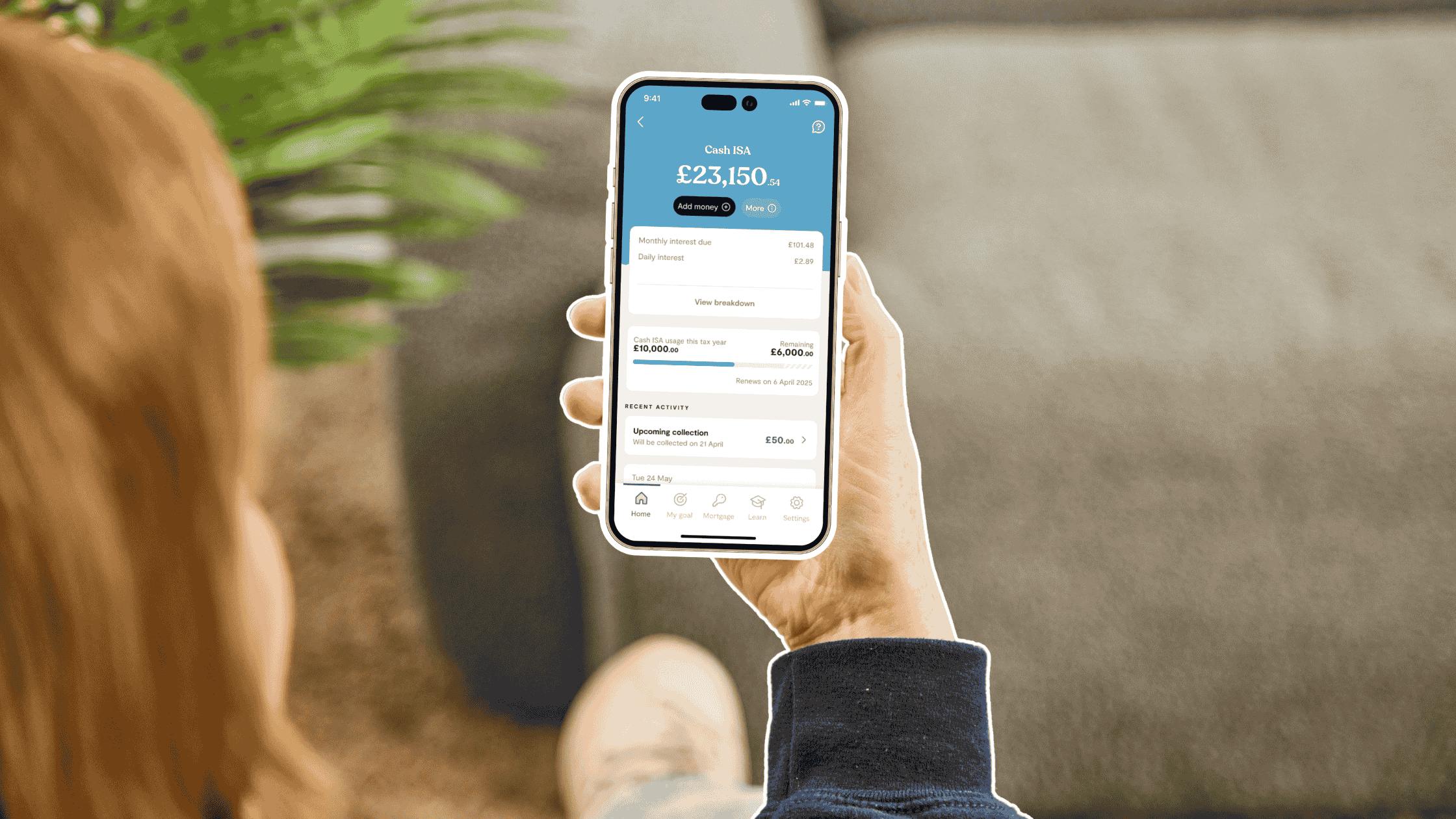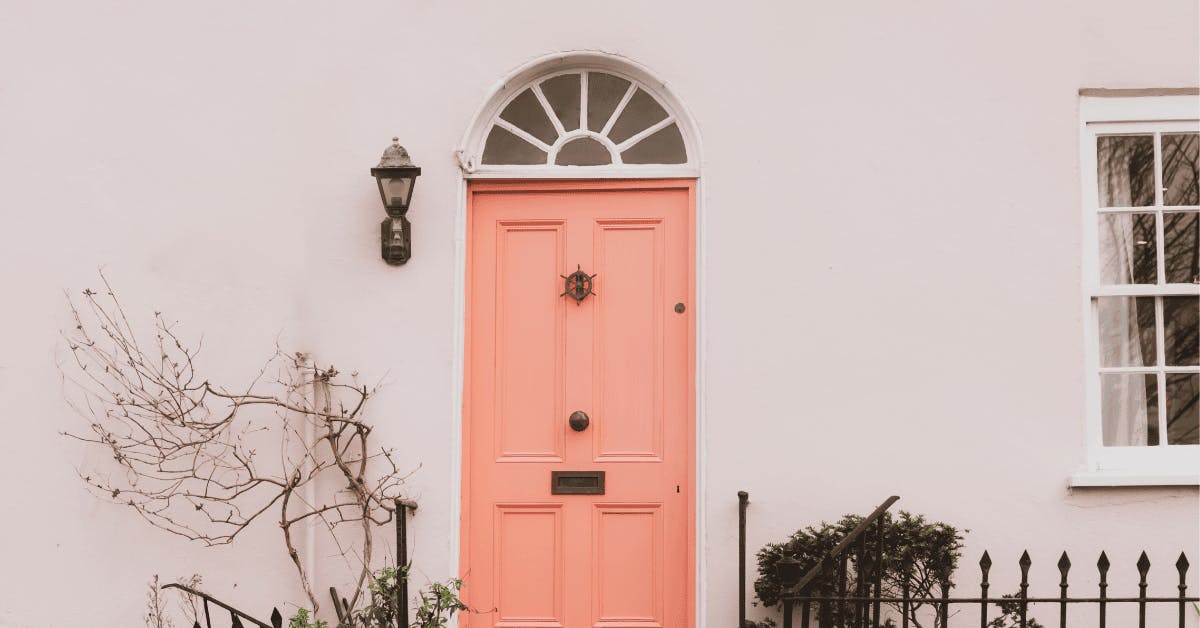7 signs you’re secretly ready to buy a house (even if you think you’re not)
Does it feel like you’re years away from buying your first house? You could be closer than you think. So many renters are convinced it’ll take forever to buy their first home, only to speak to a mortgage expert and find their first step on the ladder is closer than they think. So if you’re desperate to buy your own place, here are 7 signs you could be ready to buy a house - even if you think you’re not.
See your true buying budget without applying
With a personalised Tembo plan, you can see all the ways you could get on the ladder, including indicative interest rates and repayments - all without applying.

1. You’ve built up an emergency fund
If you’ve managed to save an emergency fund worth between 3 to 6 months’ living costs, you’ve already laid the foundations for buying a home. Because not only will you have a safety net if you lose your job or get hit with a massive unexpected bill, you’ve also managed to develop a savings habit in a world where even stepping out of your front door costs money.
And while you may have to hold off buying until you’ve saved up a large enough house deposit, it is possible to get on the ladder with no money saved up at all, thanks to one of these schemes.
If you’ve got your rainy day fund saved and want to focus on saving up a down payment for a property, consider opening a Lifetime ISA. This is a special ISA savings account that lets you save up to £4,000 each tax year towards your first home, and the government will top up your savings by 25% for free! Plus, with the Tembo Cash Lifetime ISA you’ll earn our market-leading 3.8% AER (variable) interest rate. Find out more here.
Lifetime ISA withdrawals for any purpose other than buying a first home (up to a value of £450,000) or for retirement incur a 25% government penalty, meaning you may get back less than you paid in.
2. You always pay your rent on time (and it’s not cheap)
If you always pay your rent on time without falling behind on other bills and living costs, this is a pretty good sign that you could do the same with a mortgage. In fact, the average first-time buyer mortgage payment (£1,038) is 20% lower than the average rent (£1,248), assuming you’ve bought a typical first-time buyer property for £253,700 with a 20% deposit (£50,740).
To see how mortgage payments compare to rent across different parts of the country, check out our guide on What £1,200 Gets You Across Great Britain.
What if you’re paying your rent and bills on time, but you’re struggling to save a deposit because there’s not much left over after paying for the essentials? It can be harder to get a mortgage with a low deposit or no deposit (but not impossible), as lenders are more likely to have concerns about your affordability.
Today, there are plenty of 95% LTV mortgages (meaning you just need 5% of the total property price saved up as a deposit) and there are even some 100% mortgages - that’s a mortgage where you don’t have to put down any deposit at all!
With Skipton’s Track Record Mortgage, for example, you could borrow up to £600,000 for your first home. Instead of putting down a deposit, you’ll just need to prove that you’ve paid your rent and household bills in full and on time for 12 months. You’ll also need to pass Skipton’s other affordability criteria and credit score checks.
No matter how much you borrow, the interest rate will be fixed for the first 5 years of your mortgage, meaning your repayments will stay the same no matter what happens to interest rates during that period. Take a look at our guide to the track record mortgage to learn more.
Skipton isn’t the only lender offering 100% mortgages and you may find a better deal elsewhere, so it’s a good idea to get independent mortgage advice before applying. With a personalised Tembo plan, you can see if you’re eligible for 100% mortgage schemes and other budget-boosting options for free! Get started here.
Learn more: How much does a mortgage advisor cost?
3. You’ve got a steady income
One of the biggest things lenders look for is proof that you can reliably afford monthly mortgage payments. If you’ve been in the same job for a while, have a stable contract, or you’re earning a consistent income, that’s a big tick in the “ready to buy” box.
Steady income doesn’t mean you need a super high salary or a traditional 9 to 5. It’s about predictability. Lenders want to see that you’re not at a high risk of losing your income or facing huge fluctuations that could make paying your mortgage tricky.
If you’re self-employed, having a track record of regular work and a couple of years of accounts could be enough to show that you’re just as mortgage-ready as someone with a salaried role.
Learn more: What percentage of your salary should go towards a mortgage?
4. You’ve got a good credit score
Credit scores might sound complicated, but building up a good score is easier than it seems. If you’ve been getting the basics right, such as paying bills on time, not maxing out your credit cards, and avoiding late fees, you might’ve been gradually improving your score without even realising it.
Having a credit card you pay off in full each month or a phone bill you’ve never missed are just a couple of actions that contribute towards your credit score. Over time, these small, responsible habits tell mortgage lenders you’re low-risk.
A higher credit score can unlock better interest rates and increase your chances of being approved for the amount you want.
Quick tip:
Before you apply for a mortgage, use CheckMyFile to see your credit score across the three main credit agencies instead of one - Experian, Equifax and TransUnion. This will help you see what’s helping or hurting your score, making it easier to fix anything before you submit a mortgage application.
Learn more: Should I buy a house? How to decide whether to rent or buy.
5. You’ve already started saving up a house fund
Setting aside funds for your future house - especially consistently - shows a level of financial discipline and long-term thinking that’s essential for homeownership. Even if you haven’t calculated how much you need for a down payment yet, the fact that you’re prioritising saving is a strong signal that you’re mentally preparing for the leap.
It means you’re not just dreaming - you’re quietly laying the groundwork.
If you’re a first-time buyer and want to speed up your time to save, consider opening a Lifetime ISA. You can save up to £4,000 each tax year and you’ll get a free 25% boost from the government on every penny you save. Plus, with the Tembo Cash Lifetime ISA you’ll earn our market-leading 3.8% AER (variable) interest rate. Find out more here.
Save with the market-leading ✨ Cash Lifetime ISA ✨
Save up to £4,000 each tax year and get a free 25% bonus on top of your savings, up to £1,000. Plus, with the Tembo Cash Lifetime ISA, you'll earn 3.8% AER (variable) on your savings - that's hundreds more in interest towards your house fund vs saving with the closest competitor!
Lifetime ISA withdrawals for any purpose other than buying a first home (up to a value of £450,000) or for retirement incur a 25% government penalty, meaning you may get back less than you paid in.

There are also ways to boost your house fund through family support…
6. Your family want to help
If your parents, grandparents or a financially comfortable sibling wants to help you buy a home, you may be ready to get on the ladder sooner than you expected — even if you’ve not saved a deposit yet and your family aren’t ‘rich rich’.
For example, an Income Boost mortgage lets you add a family member’s income to your mortgage application to boost your mortgage size — without adding them to the property itself. This means the home is all yours, but your helper will need to step in and help with the mortgage repayments if you’re ever unable to pay them yourself.
Another option is a Savings as Security mortgage, where instead of paying a deposit, your family member will place 10% of the property’s value in a savings account held by the lender. If you make your repayments on time and in full for a set period (usually 5 years) your helper will get their savings back plus interest.
There’s also a Deposit Boost, which involves releasing money from your family member’s home and using it as the deposit on your own property. If you have your own savings, you can include them too, and potentially access a wider choice of mortgage deals and more competitive rates.
7. You’re thinking of speaking to a mortgage broker
If you’re thinking of speaking to a mortgage broker but you’re worried it’s too early to get started, why not create a free Tembo plan to find out how much you can afford to borrow.
We’ll send you a personalised mortgage plan within minutes, showing how much you can afford with a standard mortgage vs other buying schemes. You might be surprised at just how many options are available. Then, if you’d like to speak to one of our mortgage experts to discuss your options or get the ball rolling, you can book a call at a time that suits you.
On average, our customers boost their budget by £88,000
We’ve helped thousands of first-time buyers discover how they could afford their first home with the help of higher lending and affordability-boosting schemes. Create a Tembo plan to see what you could afford - it’s free!







